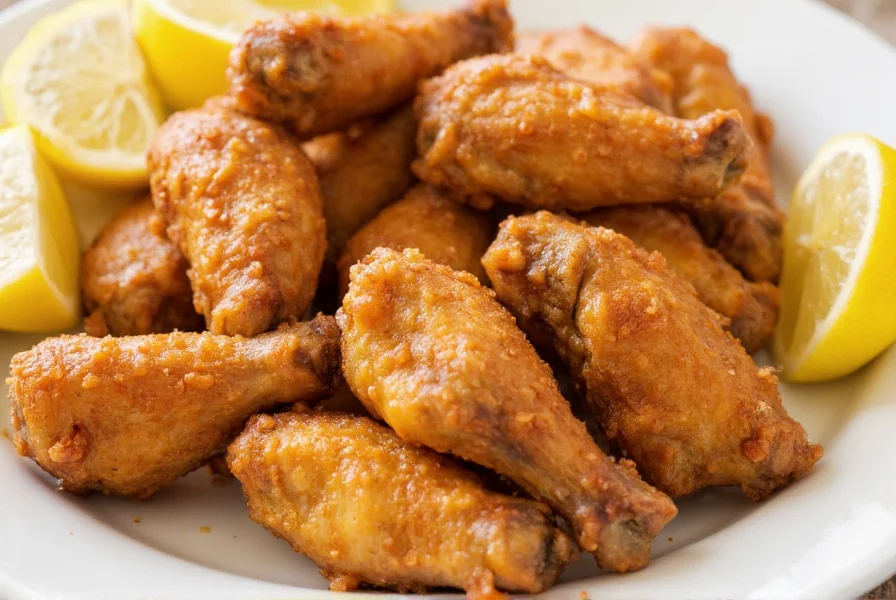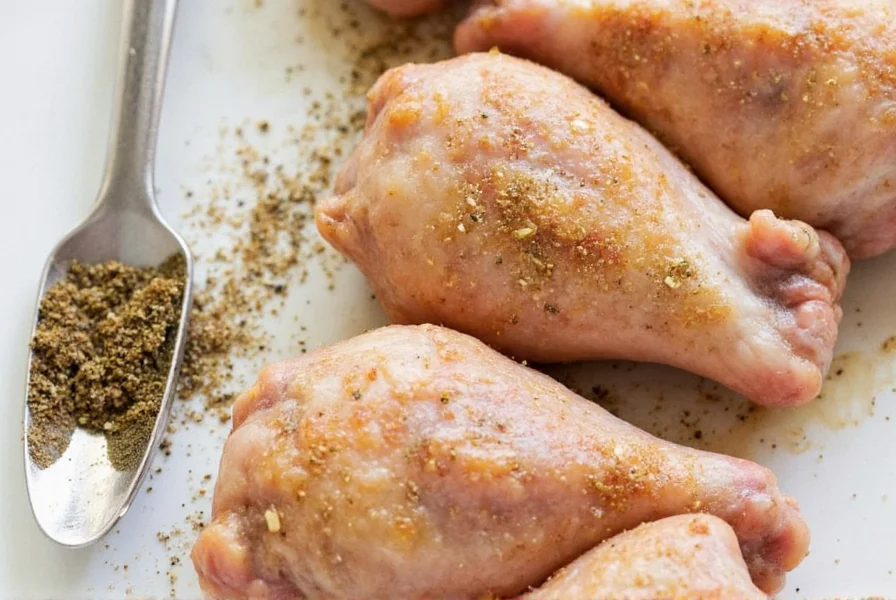Chicken wings coated in zesty lemon pepper seasoning have become a staple at gatherings and restaurants nationwide. This bright, aromatic combination cuts through the richness of fried or baked chicken with perfect balance. Understanding the science behind this flavor pairing transforms ordinary wings into extraordinary finger food that keeps guests coming back for more.
The Flavor Science Behind Lemon Pepper and Chicken Wings
Lemon pepper seasoning creates magic on chicken wings through flavor chemistry. The citric acid in lemon components tenderizes the chicken's surface while enhancing the perception of saltiness. Black pepper's piperine compound binds with fat molecules in the chicken skin, carrying flavor deep into the meat. When applied correctly, this seasoning blend creates a flavor synergy where the whole becomes greater than the sum of its parts.
Professional chefs understand that timing matters as much as the seasoning itself. High-heat cooking methods (above 375°F/190°C) can cause lemon zest to burn, creating bitter compounds. This explains why many restaurant-quality lemon pepper wings apply the seasoning after the primary cooking phase.
Selecting Quality Lemon Pepper Seasoning
Not all lemon pepper seasonings deliver equal results on wings. The best options contain:
- Freshly ground black pepper (not pre-ground)
- Real lemon zest or high-quality lemon oil
- Minimal fillers (avoid seasonings with cornstarch or excessive salt)
- No artificial colors or flavors
When examining ingredient lists, look for "lemon peel" rather than "lemon flavor" for authentic citrus notes. Premium blends often include complementary ingredients like garlic powder, onion powder, or herbs de Provence that enhance rather than overpower the lemon-pepper foundation.

Professional-Grade Application Techniques
Follow these steps for restaurant-quality lemon pepper wings at home:
- Cook wings to perfection using your preferred method (baked, air-fried, or deep-fried) until golden and crispy
- Immediately toss hot wings in a light coating of melted butter or neutral oil (about 1-2 tablespoons per pound of wings)
- Apply seasoning while wings are hot - the residual heat helps the seasoning adhere
- Use the right ratio: 2-3 tablespoons of lemon pepper per pound of cooked wings
- Toss gently but thoroughly to ensure even coverage without damaging crispiness
This post-cooking application method preserves the volatile citrus oils that would otherwise evaporate during high-heat cooking. The butter or oil creates a flavor-binding medium that prevents the seasoning from falling off during eating.
| Application Method | Adhesion Quality | Flavor Preservation | Crispiness Impact |
|---|---|---|---|
| Before cooking (dry rub) | Poor | Low (burns) | Negative |
| During cooking (tossed in oil) | Fair | Moderate | Slight negative |
| After cooking (with butter) | Excellent | High | None |
Perfect Lemon Pepper Wing Recipe
This reliable method produces consistently excellent results:
Ingredients
- 2 lbs chicken wings, separated into drumettes and flats
- 1 tbsp baking powder (for extra crispiness)
- Salt to taste
- 3 tbsp unsalted butter, melted
- 3-4 tbsp quality lemon pepper seasoning
- Fresh lemon wedges for serving
Instructions
- Pat wings completely dry with paper towels
- Toss with baking powder and salt (this draws out moisture for crispier skin)
- Air fry at 400°F (200°C) for 25-30 minutes until golden and crispy, flipping halfway
- Transfer hot wings to large bowl
- Add melted butter and toss to coat
- Add lemon pepper seasoning and toss until evenly coated
- Serve immediately with lemon wedges
Avoiding Common Lemon Pepper Wing Mistakes
Even experienced cooks make these preventable errors:
- Applying seasoning too early - causes burning and bitterness
- Using low-quality seasoning - many store brands contain excessive salt and fillers
- Over-tossing after seasoning - damages the crispy skin texture
- Skipping the fat component - butter or oil is essential for flavor adhesion
- Not adjusting for humidity - in humid conditions, use slightly more seasoning as moisture affects adhesion
Flavor Variations to Elevate Your Wings
Customize your lemon pepper wings with these professional touches:
- Lemon herb version: Add 1 tsp dried thyme and 1 tsp dried rosemary to your seasoning blend
- Spicy citrus twist: Mix in 1/2 tsp cayenne pepper or 1 tsp crushed red pepper flakes
- Garlic lemon pepper: Add 1 tsp garlic powder to enhance umami notes
- Honey lemon pepper: Drizzle with 1 tbsp honey after seasoning for sweet-savory balance
Serving and Pairing Recommendations
Lemon pepper wings pair beautifully with:
- Crisp green salads with light vinaigrette
- Cold lager or pilsner beers that complement the citrus notes
- Chilled sauvignon blanc wine
- Creamy dipping sauces like garlic aioli or herb ranch
For optimal eating experience, serve lemon pepper wings immediately after preparation while the skin remains crisp and the seasoning is fragrant. The contrast between the hot, crispy chicken and cool dipping sauce creates a satisfying textural experience that keeps this preparation method popular in restaurants worldwide.











 浙公网安备
33010002000092号
浙公网安备
33010002000092号 浙B2-20120091-4
浙B2-20120091-4